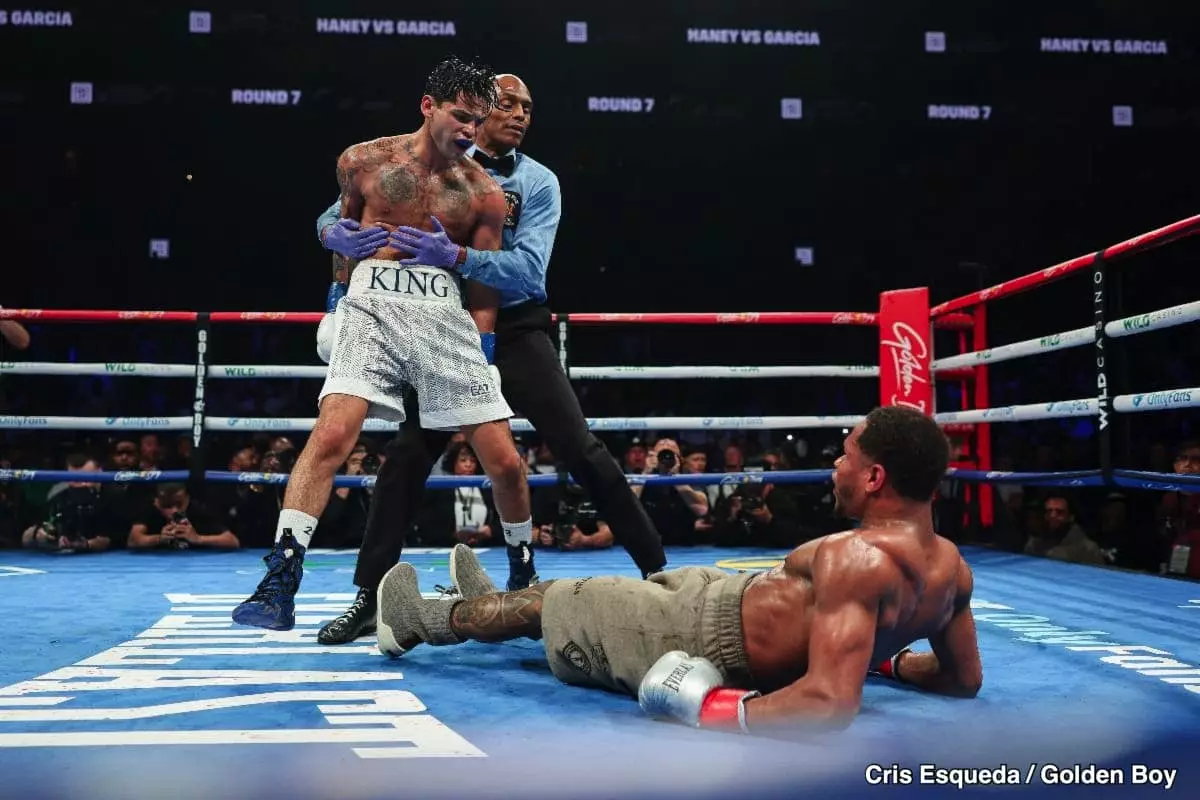In the world of professional boxing, strategic decisions often define a fighter’s career trajectory. One such pivotal moment is presented to Devin Haney, who is at a crossroads following his defeat to Ryan Garcia. Regis Prograis, a notable figure in the boxing community and a former two-time light welterweight champion, recently weighed in on the topic, expressing concern over Haney’s potential rush into a rematch with Garcia. Prograis argues that a more prudent approach would involve taking a tune-up fight first. This stance raises questions about Haney’s mental state and readiness to return to the ring.
Following the bout on April 20, Haney faced a significant setback, being knocked down three times and ultimately losing decisively to Garcia. Such a defeat, particularly of that nature, can leave lasting psychological scars, leading to self-doubt and hesitance, regardless of a fighter’s tangible abilities. Prograis believes that bypassing a warm-up match could compound Haney’s issues, arguing that diving headfirst into a rematch would likely result in another loss, only exacerbating the psychological toll from their first encounter.
One cannot overlook the financial dynamics that come into play in boxing. As Prograis points out, the lure of a lucrative rematch with Garcia might tempt Haney to ignore prudent advice regarding his career trajectory. The financial arguments surrounding this potential rematch are compelling, particularly in an age where fighters often gravitate towards bouts that promise significant paydays. Yet, one must ask: at what cost?
If Haney takes a tune-up fight instead, he may not only regain confidence but showcase his skills against a less daunting opponent. The fans, however, might question the financial viability of such a decision. Facing a lower-tier opponent does not guarantee hefty earnings, leading to a conflict between maximizing short-term financial gain and ensuring long-term career health.
The psychological aspect of boxing cannot be overstated. Haney, despite his undeniable talent and technical skills boasting an impressive record of 31 wins, must grapple with the reality of his recent loss. Prograis notes that even statements made by Haney’s camp will not erase the memories of the defeat or the doubts it instilled in him. It’s a harsh reminder that confidence in the sport often dictates performance inside the ring.
If Haney wishes to regain his status among boxing elites, mental fortitude is equally as important as physical training. Prograis advocates for a focus on rebuilding confidence against other skilled opponents, such as IBF champion Richardson Hitchins or renowned fighters like Teofimo Lopez or Shakur Stevenson. Such matchups could provide a pathway for Haney to rebuild his self-assurance before stepping back into the high-stakes arena of a rematch.
The essence of Prograis’s argument lies in the broader spectrum of risk versus reward in professional boxing. While the prospect of a rematch with Garcia offers significant financial allure, the question remains: is this the best option for Haney’s career in the long run? Engaging in a tune-up fight first could provide him with the necessary momentum to reestablish himself, whereas a second encounter with Garcia without proper preparation may lead to further setbacks and diminish his standing in the sport.
Prograis firmly states that Haney should not rush into another bout with Garcia, advocating for a deliberate and strategic consideration of his next moves. Ultimately, the focus should be on how Haney can emerge from this difficult period stronger and more confident, which would serve him better than a rash decision dictated by immediate financial gain.
Devin Haney’s career rests on a delicate tightrope. He must weigh the potential financial rewards of a rematch against the imperative of mental and physical readiness. The boxing community watches closely, as each decision could pave the way for either a successful comeback or a continued struggle in the unforgiving arena of professional boxing.


Leave a Reply